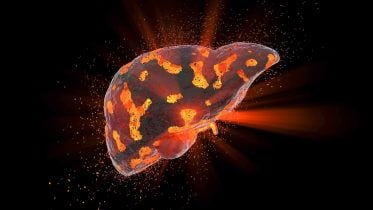Duke Health researchers have found that aging-related liver damage might be reversible by targeting a specific type of cell death with a drug, offering hope for millions suffering from liver diseases exacerbated by metabolic stresses. The liver, despite being one of the body’s most robust organs, remains susceptible to damage from stress and aging, which can lead to disease, significant scarring, and even organ failure. Researchers at Duke Health may have discovered a method to rejuvenate the liver.
In their study, which involved mice and human liver tissue, the team discovered that aging triggers the death of specific liver cells. They successfully reversed this aging process in mice using an investigational drug. The finding, which appears in the journal Nature Aging , holds high promise for the millions of people who have some degree of liver damage – livers that are essentially old due to the metabolic stresses of high cholesterol, obesity, diabetes or other factors.

“Our study demonstrates that aging is at least partially reversible,” said senior author Anna Mae Diehl, M.D., the Florence McAlister Distinguished Professor of Medicine at the Duke University School of Medicine.
“You are never too old to get better.” Understanding Cirrhosis and MASLD Diehl and colleagues set out to understand how non-alcoholic liver disease develops into a severe condition called cirrhosis, in which scarring can lead to organ failure. Aging is a key risk factor for cirrhosis amon.























